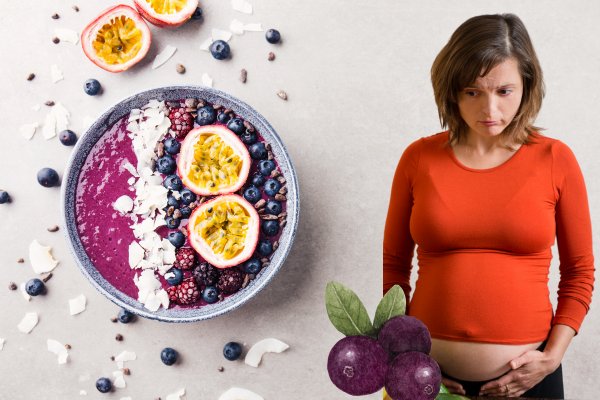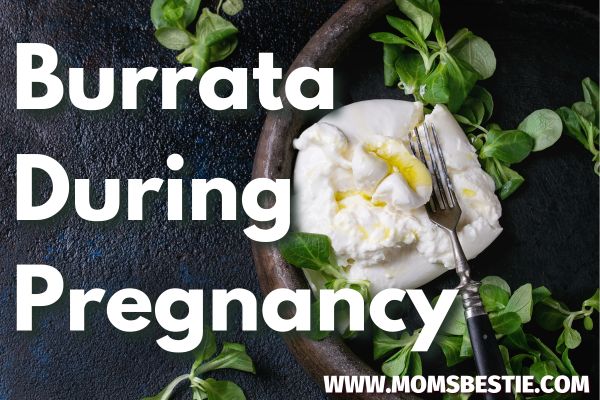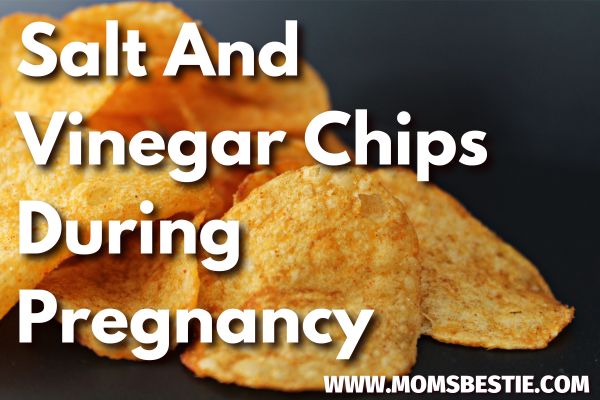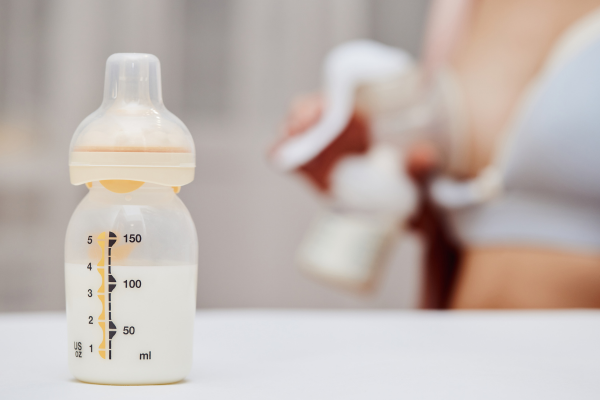9 Ways To Clean Out Your Unborn Baby’s System

In a world filled with hustle, bustle, and the constant hum of activity, expectant parents often find themselves contemplating the well-being of their unborn child.
From the moment those two lines appear on the pregnancy test, a surge of protective instincts takes hold, prompting questions about how to create the healthiest possible environment for their little one.
Amidst the everyday challenges we face, it’s only natural to wonder: How can we ensure our unborn baby’s system remains pristine and untouched by the complexities of the world?
Are you eager to learn how to foster a healthy foundation for your unborn baby’s system?
In this article, let us delve into the significance of early care and discover the power you hold in shaping your baby’s future well-being, paving the way for a lifetime of health and happiness.
How Should You Clean Your Unborn Baby’s System?
1. Avoid Harmful Substances
Steering clear of tobacco, alcohol, and recreational drugs during pregnancy is crucial for the well-being of your unborn baby.
Tobacco
Smoking or exposure to secondhand smoke can restrict the flow of oxygen and vital nutrients to the baby, leading to increased risks of preterm birth, low birth weight, and developmental issues.
Alcohol
Consuming alcohol during pregnancy can have severe consequences on the baby’s development, leading to a range of physical, behavioral, and cognitive impairments known as Fetal Alcohol Spectrum Disorders (FASDs).
Recreational drugs
Illicit drugs can cross the placenta and directly affect the baby’s development.
They can lead to a higher risk of birth defects, low birth weight, developmental delays, and addiction in the baby.
2. Nourish yourself with a balanced diet
Consuming a well-rounded and nutrient-rich diet is essential to support your baby’s growth and development during pregnancy.
Fruits and vegetables
Include a variety of colorful fruits and vegetables in your diet, as they provide essential vitamins, minerals, and antioxidants.
These nutrients support the development of the baby’s organs, immune system, and overall health.
Whole grains
Opt for whole grains like whole wheat, brown rice, oats, and quinoa, as they are rich in fiber and provide sustained energy.
They also offer essential nutrients like B vitamins, iron, and magnesium.
Lean proteins
Include lean sources of protein such as poultry, fish, legumes, and tofu.
Protein is crucial for the development of your baby’s muscles, organs, and cells.
Healthy fats
Incorporate sources of healthy fats like avocados, nuts, seeds, and olive oil.
These fats provide omega-3 fatty acids, which support the baby’s brain and eye development.
3. Stay Hydrated
Proper hydration is vital during pregnancy as it supports various bodily functions and helps maintain a healthy environment for your baby.
- Water is essential for transporting nutrients to the baby, maintaining amniotic fluid levels, and aiding in the development of the placenta.
- Adequate hydration helps prevent common pregnancy discomforts like constipation, urinary tract infections, and swelling.
- It assists in flushing out toxins and waste products from your body, promoting overall detoxification.
To stay hydrated, aim to drink around 8 to 12 cups (64 to 96 ounces) of water daily.
However, individual needs may vary, so listen to your body and increase fluid intake if you feel thirsty or if you live in a hot climate.
You can check out the trendy water bottle here.
4. Minimize Exposure To Environmental Toxins
Reducing exposure to household chemicals, pesticides, and pollutants is crucial for creating a safe and clean environment for your baby’s development.
Household Chemicals
Many common cleaning and personal care products contain potentially harmful chemicals.

Opt for natural and eco-friendly alternatives that are free from harsh chemicals, fragrances, and dyes.
Read labels carefully and choose products labeled “non-toxic” or “safe for pregnancy.”
Pesticides
Limit exposure to pesticides by choosing organic produce whenever possible.
If you must use pesticides or insecticides, take precautions like wearing gloves and a mask, and ensure proper ventilation during application.
Pollutants
Be mindful of indoor and outdoor pollutants that can adversely affect your baby’s health.
Ensure good ventilation in your living spaces, open windows to let fresh air circulate, and use air purifiers if necessary.
Avoid spending time in heavily polluted areas and minimize exposure to secondhand smoke.
5. Practice Safe Food Handling
Safe food handling practices during pregnancy are essential to minimize the risk of foodborne illnesses that can harm both you and your unborn baby.
Washing Fruits And Vegetables
Thoroughly wash fruits and vegetables under running water to remove any dirt, bacteria, or pesticide residues that may be present.
Use a scrub brush for firmer produce and remove outer leaves from leafy greens.
Cooking Meat And Fish
Cook meat, poultry, and fish thoroughly to kill any bacteria or parasites that may be present.
Use a food thermometer to ensure proper cooking temperatures.
Avoid consuming raw or undercooked seafood, unpasteurized dairy products, and deli meats that may harbor harmful bacteria.
Avoid Certain Fish
Mercury, a toxic substance, can be found in some fish and seafood.
High levels of mercury can harm your baby’s developing nervous system. Here are some guidelines to follow:
- High-mercury fish to avoid: Avoid consuming fish such as shark, swordfish, king mackerel, and tilefish, as they tend to contain higher levels of mercury.
- Low-mercury alternatives: Opt for fish and seafood options that are low in mercury, such as salmon, trout, shrimp, and canned light tuna. These options provide beneficial nutrients like omega-3 fatty acids while minimizing mercury exposure.
Food Storage And Handling
Store perishable foods in the refrigerator or freezer promptly to prevent the growth of harmful bacteria.
Avoid cross-contamination by keeping raw meats separate from other foods and using separate cutting boards and utensils for different food types.
6. Engage in regular physical activity
Staying physically active during pregnancy offers numerous benefits for both you and your baby.
However, it’s important to consult with your healthcare provider before starting or continuing any exercise routine.
Safe Exercises During Pregnancy
Your healthcare provider can guide you on suitable exercises based on your health condition and stage of pregnancy.
Generally, low-impact activities like walking, swimming, prenatal yoga, or stationary cycling are considered safe for most expectant mothers.
Promoting Healthy Circulation
Regular physical activity promotes healthy blood flow and circulation, which helps deliver nutrients and oxygen to your baby.
It also aids in the removal of toxins and waste products from your body.
Mental Well-Being
Engaging in physical activity releases endorphins, the “feel-good” hormones, which can help reduce stress, anxiety, and improve your overall mood and mental well-being during pregnancy.
7. Manage Stress Levels
Managing stress during pregnancy is essential for the well-being of both you and your baby.
Chronic stress can have negative effects on pregnancy outcomes and may contribute to complications.
Here are some ways to manage stress:
Relaxation Techniques
Engage in relaxation techniques such as meditation, deep breathing exercises, guided imagery, or progressive muscle relaxation.
These techniques help activate the body’s relaxation response, reducing stress hormones and promoting a sense of calm.
Prenatal Yoga
Prenatal yoga combines gentle stretches, breathing exercises, and relaxation techniques specifically designed for pregnant women.

It can help reduce stress, improve flexibility, and promote overall well-being.
Support Network
Seek support from your partner, family, friends, or support groups.
Sharing your feelings and concerns with loved ones can provide emotional support and help alleviate stress.
Time For Self-Care
Set aside time for activities that bring you joy and help you relax.
It can be as simple as reading a book, taking a warm bath, practicing a hobby, or indulging in activities that help you unwind.
8. Get Sufficient Rest
Getting enough rest and quality sleep is crucial for your well-being and the healthy development of your baby.
Quality Sleep
Aim for 7-9 hours of uninterrupted sleep each night.
Create a comfortable sleep environment by keeping the room dark, quiet, and at a comfortable temperature.
Use supportive pillows or pregnancy pillows to find a comfortable sleeping position.
Napping
If you feel fatigued during the day, take short power naps to recharge.
Find a quiet and comfortable place where you can relax and rest for a brief period.
Prioritize Self-Care
Allow yourself to rest and relax throughout the day.
Take breaks when needed, practice relaxation techniques, and listen to your body’s cues for rest and rejuvenation.
9. Stay Informed About Perinatal Health
Staying informed is essential for making informed decisions and ensuring the well-being of your baby.
Prenatal Classes
Consider attending prenatal classes or workshops offered in your community or by healthcare providers.
These classes provide valuable information about pregnancy, childbirth, breastfeeding, and newborn care.
Reliable Sources
Read reliable sources of information, such as books, reputable websites, or materials provided by your healthcare provider.
Stay updated on current guidelines and recommendations regarding prenatal health, nutrition, exercise, and safety precautions.
Consult Healthcare Professionals
Reach out to your healthcare provider for any questions or concerns you may have.
They are the best source of personalized guidance and can address any specific concerns related to your pregnancy.
Why Should You Clean Your Unborn Baby’s System?
Mothers cleaning out their unborn baby’s system can have several potential benefits for the baby’s health and development.

Here are a few key reasons why it is important:
Preventing Birth Defects
Certain drugs and substances, when consumed during pregnancy, can increase the risk of birth defects in the developing baby.
By avoiding these harmful substances and cleaning out the body, expectant mothers can reduce the chances of birth defects and promote healthier development.
Avoiding Neonatal Abstinence Syndrome (NAS)
Some drugs, such as opioids, can pass through the placenta and affect the baby’s system.
When these drugs are present in the baby’s system at birth, it can lead to neonatal abstinence syndrome.
Preventing Mental Health Issues
The presence of certain substances in the baby’s system during pregnancy can increase the risk of mental health issues later in life.
Expectant mothers can reduce the potential for such complications and promote optimal mental well-being for their unborn child by ensuring a clean and healthy environment
Minimizing The Risk Of Premature Birth
Premature birth often comes with complications and potential health issues for the baby.
A clean and healthy environment in the mother’s body can contribute to a reduced risk of premature birth.
Promoting Proper Organ Development
By avoiding substances that can interfere with organ formation, such as certain medications or toxins, expectant mothers can help safeguard the baby’s organ health.
Summing It Up
Cleaning out your unborn baby’s system goes beyond just preventing birth defects or complications.
It is about fostering a foundation of health and vitality that will shape their lives for years to come.
From promoting organ development and immune system strength to reducing the risk of complications and supporting optimal growth, these efforts lay the groundwork for a healthier and happier future.
Remember, every choice you make during pregnancy matters.
Embrace the power you have to create a nurturing environment, both physically and emotionally, for your baby’s growth and development.





